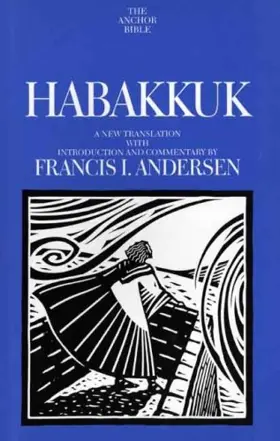

Habakkuk
Pages
416
Publisher
Yale University Press
Published
1/1/2001
ISBN-13
9780300139730
The book of Habakkuk (one of the twelve Minor Prophets) is an intensely personal testimony played out against a highly political backdrop. Writing as his land and his fellow Israelites were being invaded and plundered by the Chaldeans, Habakkuk questions God’s actions with a passion equal to Job’s. Habakkuk wonders, how can a God who is just and compassionate allow his people to be slaughtered? In trying to punish the Israelites and right the wrongs of his people, why did God choose the savage, infinitely more wicked Chaldeans as his instrument? The puzzles Habakkuk contemplates will stir the hearts and minds of anyone who has ever wrestled with the evils of existence. Francis I. Andersen, a well-known authority on the Minor Prophets and acclaimed for his pioneering work in the study of biblical Hebrew, examines Habakkuk both as a work of sophisticated theological inquiry and as an artistic creation. The result is a book that illuminates the nuances of the text and brings to life the culture and values of the ancient Israelites through a compelling portrait of one the Bible’s most fascinating and most elusive prophets.
Collections
This book appears in the following featured collections.
- TGC: Scholarly Commentaries by The Gospel Coalition
Reviews
Longman says, “Andersen has produced an excellent scholarly reading of the prophet Habakkuk.” He is a clear writer who provides in-depth analyses and chooses topics that “make this commentary better suited for the scholar and [scholarly] minister.”
[Full Review]
Offers a much longer and more technical treatment.
Francis Andersen's Anchor Bible volume on Habakkuk is the best of the mainstream academic commentaries. Anderson co-wrote the Anchor Bible volumes on Hosea, Amos, and Micah with David Noel Freedman, and he wrote the TOTC volume on Job by himself. Andersen is more conservative than most authors in this series and less conservative than most authors in the Tyndale series.
As with most Anchor Bible volumes, it is intended to be readable by non-scholars, using only transliteration and translation of Hebrew terms. However, it is extremely detailed on matters related to poetic structure, literary devices, word meanings, textual variants, and so on. It is hard to follow if you don't know a lot about the forms and features of Hebrew poetry, grammar, etc. On some matters, it is far more detailed than most pastors would want for use in sermon preparation. He uses lots of technical terminology without defining or explaining most of it. To a scholar, this is a great resource, with full argumentation as to his reasoning process. However, it should be left in the hands of scholars, since others will have a hard time understanding most of that reasoning.
Often the focus is just on producing the correct translation of the text, without connecting it up with the historical setting or theological meaning. Andersen does ultimately ground his theological reading in later revelation through Jesus Christ, and thus his interpretation of the book is Christian. However, it isn't much of a focus even in such a large volume. Andersen ultimately defends the unity of the book and the reality of predictive prophecy in the book. He strangely thinks "the righteous" in the book is just Habakkuk, and "the wicked" in the book are only Babylon and never Judeans, a conclusion I find hard to fit with the book (and indeed seems to me to miss one of the major points of the book).
[Full Review]



